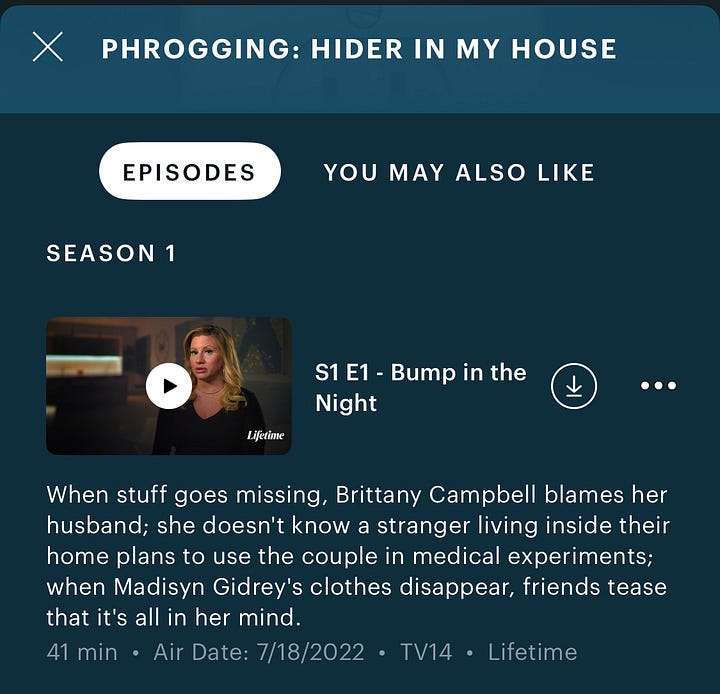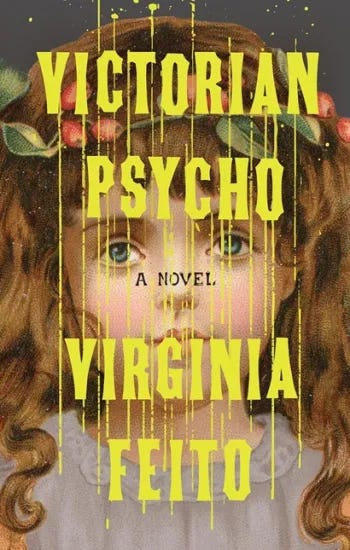what kind of feedback do you need?
This is probably applicable to relationships too, but Esther Perel, I am not
Thank you to everyone who responded to last month’s poll. Most of you seem to enjoy a mix of content, so I’ll continue with my smorgasbord of chaos—but now, with headings! Here’s our spiffy new structure for the newsletter: the main topic, “Down the rabbit hole,” “Art picks,” “Line of the month.” I explain what they all mean below.
As for frequency, over half of you said you’d prefer monthly emails, and that seems like something I can maintain (she says cautiously), so that’s what I’ll attempt. I’m going to aim to send this out the last week of every month. Maybe if I write that here, I’ll actually manifest it.
Before we get started, I want to let you know that the TMH ebook is only $1.99 over on Amazon until June 1st! This Might Hurt is the underdog of my backlist—can we give her a little boost this week? US readers, you can grab the ebook here.
Okay, onto the main topic.
Knowing the type of feedback you need
Revision is an entirely different beast than generative work. And what is central to successful revision? Feedback.
When I was a baby writer, I thought the source of the feedback was most important. Before I had an agent, before I enrolled in an MFA program, I agonized over how to get my work in front of qualified readers. That challenge matters too—but today, I want to talk about types of feedback, not sources.
Developmental vs. linework
This is the easiest to figure out, based on where you are in the writing process. Developmental feedback is the hard stuff. It’s asking big questions. It’s addressing character development, structure, plot, dialogue, setting, and so on. It’s what you will spend 75% of your revision time working on. If you’re a writer with a publishing deal, your primary source of developmental edits will be your editor, though agents and beta readers also often weigh in.
Linework is a catch-all I’m using for the more granular work of copyediting and proofreading. There’s little point in devoting a bunch of time to linework when you’re still in the developmental phase—if half of what you’ve written is going to change, why bother polishing it?
A lot of newbie writers move too quickly through the developmental phase. You’ll know you’re ready for linework when you’ve spent so long working on your novel that you can’t stand it anymore. :)
Written vs. oral
This one took me a minute to figure out. I have a few editors who weigh in on my books (US, UK, and Canada), and they each have their own preferences for giving feedback. Early in my career, it never occurred to me that I could ask for feedback in the format that works best for me. Even if I had realized that then, I didn’t know what type I wanted! Some of this stuff you have to learn through trial and error.
I’ve come to recognize that I prefer written feedback, ideally grouped into major areas of revisions. I love a long revision letter. Why? A) It gives me something to refer back to in the months of editing to follow. I print the letter and keep it by my laptop while I work. B) It helps my team and I agree on the issues I’ll be addressing. Feedback delivered via phone/Zoom was typically less structured, and I often left those conversations not sure which elements were most important to my team. C) I find it difficult to simultaneously absorb feedback for the first time, transcribe what I’m hearing, and participate in the conversation. I’d much rather read and absorb on my own, then have a conversation once I’ve had time to think about the feedback.
This is what usually happens with my team now. They send me their written thoughts, and then a week or so later, we hop on a call and hash out any questions, concerns, etc. I feel much more prepared to tackle a round of revisions using this method. Editorial feedback can be overwhelming, especially early on when there’s so much work to do, but it shouldn’t be confusing. If you’re leaving calls or reading emails and scratching your head, try changing up the medium.
Positive vs. critical
I have been writing full time for 6.5 years, and I *just* learned this one, like, a month ago. (Never said I was a fast learner.) It applies to non-professional sources of feedback. Please don’t ask your editor for only positive edits. 🙈
I am most insecure about a book when it’s in its nascent phase. (Also when it’s about to publish.) When my novels are infants, it takes very little for me to lose faith in them. For this reason, I’ve become less forthcoming about new projects during book club meetings, interviews, etc. When I share a new idea I love and get no reaction, I want to die a little. It’s better to wait until I’ve nailed the pitch.
But! There are times when you have to share your ideas before they’re shiny. Before I share jacket copy or a title or sample chapters with my agent, I sometimes like to get a thumbs up from someone else first. To be honest, I don’t really want constructive criticism at this stage. My agent will tell me if the idea isn’t salable. What I want is my husband or family member or friend to tell me the new book is brilliant, that it’s a home run. It’s cringey to show someone your work and say, “Tell me it’s good.” But I’ve learned that what I’m asking for isn’t feedback—it’s reassurance. The tough edits will come later. Sometimes you just need a pat on the back, to be told your make-believe fairy world is worth sharing with a wider audience.
Down the rabbit hole
One of my favorite things about my job is that it allows me to be a perpetual student, to indulge my curiosity every day. I get to learn a little, sometimes a lot, about a whole host of topics. In my former career in advertising, this was also true, but now I get to pick the topics instead of learning everything there is to know about, say, Morton salt (a real former client).
I thought it might be fun to share the most interesting learnings with you from month to month. Sometimes they will be article links, sometimes they’ll be deeper dives. Let’s see how it goes.
This month I learned about phrogging.
“Phrogging” is similar to squatting, except in this case, the squatter lives in someone else’s home WHILE IT’S OCCUPIED. Shout out to fellow author Tessa Wegert for introducing me to this term via her excellent new novel, IN THE BONES, out in November. Frankly, I’m horrified this phenomenon happens frequently enough that it requires naming. I’ve been working on a phrogging story on and off for years—very convenient to have a term for it now. If, like me, this is a can’t-look-away situation for you, I have good news: there’s a 10-episode true crime series on Hulu called Phrogging: Hider in My House that delves into real life stories of phroggers.


Art picks



Victorian Psycho by Virginia Feito. I have a new favorite book. It reminds me of one of my all-time favorites, We Have Always Lived in the Castle, and stars my favorite kind of narrator: deranged but high-functioning. (Yes, I realize I’ve used the word “favorite” 3x in two sentences. Warranted.) This book first caught my attention when the NYT described it as “if Patrick Bateman were a 19th century English governess.” If you have hang-ups reading about the murder of fiction’s untouchables (animals and children), mosey on. But Lord, this book is so dark and funny and razor sharp. I wanted to reread it while reading it the first time. I rented it from the library but have since procured a copy for my home shelves.
Dying for Sex (Hulu). It’s right there in the title—a show about terminal cancer and sex that somehow manages to be funny much more often than sad, I swear! I laughed through the first 7 episodes and, okay, cried through the last one. The dialogue is masterful. Jenny Slate is transcendent. One of the best portrayals of female friendship I’ve seen onscreen.
Colored Television by Danzy Senna. Maybe it was just the writerliness of it all that spoke to me, but I found myself nodding along to so much of Colored Television. Senna has an excellent bullshit detector, and she lets none of her characters off easy—not even our protagonist. This is a quick, sharp, and thought-provoking read about being biracial in the US. Well worth your time.
Line(s) of the month
Sometimes this will be a line from my own WIP (work in progress). Sometimes it will come from other authors whose work made me think.
This month I want to give you a sneak peek into my fourth book. I’m currently working on the third draft and am pretty excited about the shape this novel is taking.
Here are the last 50 words of Chapter 1:
He bears down. The treads find traction, the car lurches. He yanks the wheel to the right in the nick of time, at the very last second. The tires obey. The Prius rockets forward. He holds his breath. The forest stills.
Arnie Tenderton crashes his car straight into a tree.
Book 4 is scheduled to publish fall 2026. I cannot WAIT for you all to meet Arnie.
Talk to you next month,




